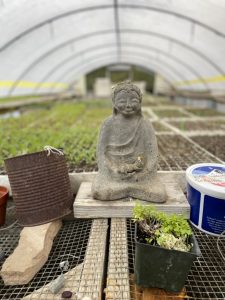 The Columbia City Yoga on-line Moving into Meditation class met this morning. We reflected on our kinship with all beings. We drew on a Zen koan or teaching story to acknowledge all our relations. We contemplated how we are supported and, in turn, support others. Witnessing practice and deep caring for the natural world moves us to compassion action.
The Columbia City Yoga on-line Moving into Meditation class met this morning. We reflected on our kinship with all beings. We drew on a Zen koan or teaching story to acknowledge all our relations. We contemplated how we are supported and, in turn, support others. Witnessing practice and deep caring for the natural world moves us to compassion action.
We heard a teaching story from the Hidden Lamp: Stories from Twenty-Five Centuries of Awakened Women. This book was co-edited by writers and Zen teachers Zenshin Florence Caplow and Reigetsu Susan Moon. The teaching story, The Old Woman’s Relatives, points to our inter-relatedness with the human and more than human world. Zenshin Caplow’s commentary reminds us that we are not alone. We live within a circle of caring.
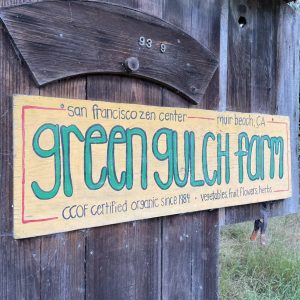 We heard from eco-philosopher David Abram’s book, Spell of the Sensuous: Perception and Language in a More-Than-Human World, David’s writings remind us that our very development depends on our relations with human and more than human life. He urges us to reflect on the impact we have on the world and to care for all that we can.
We heard from eco-philosopher David Abram’s book, Spell of the Sensuous: Perception and Language in a More-Than-Human World, David’s writings remind us that our very development depends on our relations with human and more than human life. He urges us to reflect on the impact we have on the world and to care for all that we can.
We ended with Daniel Landinsky’s translation of Sufi poet, Hafiz’ poem, Today.
Guided Reflection
Welcome. Last time we met, we reflected on our love for the natural world. We contemplated the vulnerability that arises when feeling the precarity of climate change. Practice allows us to feel these difficult truths. Uncertainty can be fertile ground from which compassionate action can arise.
 I recently traveled over 800 miles to attend the Mountains, Rivers, and the Great Earth retreat at Green Gulch Zen Center. Many hours of driving took me through the heat and smoke of hundreds of fires burning in Washington, Oregon and California. The sky was filled with haze, the morning sun glowed angry red. On the long snake of highway I felt the heartache of Earth’s burning. It was a miracle to arrive under the clouds and mists of fertile Green Gulch Valley.
I recently traveled over 800 miles to attend the Mountains, Rivers, and the Great Earth retreat at Green Gulch Zen Center. Many hours of driving took me through the heat and smoke of hundreds of fires burning in Washington, Oregon and California. The sky was filled with haze, the morning sun glowed angry red. On the long snake of highway I felt the heartache of Earth’s burning. It was a miracle to arrive under the clouds and mists of fertile Green Gulch Valley.
The Retreat focused on koans or teaching stories from The Hidden Lamp: Stories from Twenty-five Centuries of Awakened Women. We focused on stories of the natural world and about the courage needed to feel the suffering caused by climate change. Feeling and practice inspire us to protect what we hold most dear. Our teachers, Zenshin Florence Caplow and Reigetsu Susan Moon, co-edited this wonderful book. They invited us into silence, dialogue, writing and meditation practice.
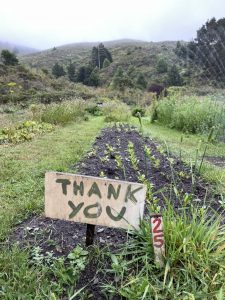 Much of our time was spent outside: contemplating our love for the natural world. Sitting and slowly walking through the farm and gardens revealed little altars and signs everywhere: on garden sheds, sitting benches, fence posts, garden gates; among trees, rows of vegetables, ornamental flowers; under the eves of buildings and inside adobe workshops. Everywhere I looked I was reminded of the sacred. With every step, I was given the gifts of so many loving hands and hearts.
Much of our time was spent outside: contemplating our love for the natural world. Sitting and slowly walking through the farm and gardens revealed little altars and signs everywhere: on garden sheds, sitting benches, fence posts, garden gates; among trees, rows of vegetables, ornamental flowers; under the eves of buildings and inside adobe workshops. Everywhere I looked I was reminded of the sacred. With every step, I was given the gifts of so many loving hands and hearts.
One of our first teaching stories was called The Old Woman’s Relatives. It originated in China, in the 9th century:
Once a monk on pilgrimage met an old woman living alone in a hut. The monk asked, “Do you have any relatives?”
She said, “Yes.”
The monk asked, “Where are they?”
She answered, “The mountains, rivers, and the whole earth, the plants and trees are all my relatives.”
 I think this teaching story points to all that is sacred. Walking through the Green Gulch Valley my gaze was drawn out of myself to wonder at the towering trees who seemed to be silently witnessing our human doings. Sitting in the gardens, surrounded by rows of vegetables, flowering plants and fruiting trees I heard the calls of bird after bird after bird. Bees vibrated. Lizards and snakes silently sunned themselves on sandy pathways. Rabbits and deer foraged past fences. “‘The whole earth, the plants and trees . . .” felt like kin. In her commentary on the story, Zenshin Florence writes that the old woman, does, indeed, have relatives:
I think this teaching story points to all that is sacred. Walking through the Green Gulch Valley my gaze was drawn out of myself to wonder at the towering trees who seemed to be silently witnessing our human doings. Sitting in the gardens, surrounded by rows of vegetables, flowering plants and fruiting trees I heard the calls of bird after bird after bird. Bees vibrated. Lizards and snakes silently sunned themselves on sandy pathways. Rabbits and deer foraged past fences. “‘The whole earth, the plants and trees . . .” felt like kin. In her commentary on the story, Zenshin Florence writes that the old woman, does, indeed, have relatives:
. . . “Just look around, monk, and show me one thing that is not a relative!” She’s not alone after all; she isn’t unsupported. None of us are, however we may feel.
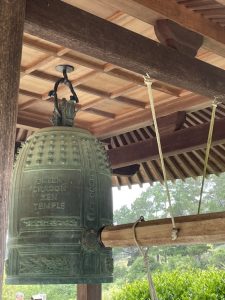 This ancient story echoes the wisdom teachings of Buddhist inter-dependence and the Lakota acknowledgment of “all my relations.” We are all related. Everything in our universe is interconnected. We support each other in being here today. We all serve others and are served by others. Naturalist and writer David Abrams reminds us:
This ancient story echoes the wisdom teachings of Buddhist inter-dependence and the Lakota acknowledgment of “all my relations.” We are all related. Everything in our universe is interconnected. We support each other in being here today. We all serve others and are served by others. Naturalist and writer David Abrams reminds us:
All we have may meet something that’s needed so all our relations may be sustained in this life we live together. We can offer ourselves to the world: with our vision, hearing, touching, feeling and actions.
Let us begin by coming fully present with our bodies, minds and hearts. Feel and breathe. How does your body make itself known to you? Can your mind agree to hold sensations long enough to create relationship?
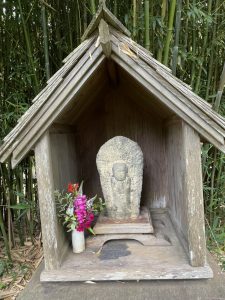 Feel your feet long enough to know them. Explore sensation in your legs and thighs; the pelvic bowl and what it holds. Travel the riverbed of your spine. Enter the deep liveliness of your belly. Feel life pulsing in your chest; the subtle movements of heart and lungs. Move awareness through shoulders along arms. Sense the intelligence of your hands. Explore how you sense your brain; how it interrelates and orchestrates your whole body. Sense your whole body.
Feel your feet long enough to know them. Explore sensation in your legs and thighs; the pelvic bowl and what it holds. Travel the riverbed of your spine. Enter the deep liveliness of your belly. Feel life pulsing in your chest; the subtle movements of heart and lungs. Move awareness through shoulders along arms. Sense the intelligence of your hands. Explore how you sense your brain; how it interrelates and orchestrates your whole body. Sense your whole body.
As you are ready, you might settle awareness on the breath or a particular area of the body. You could broaden awareness – letting the senses open to simply being alive. No need to search or try. Let yourself experience restful awareness.
As we rest on Earth’s body we are inter-being. Take some moments to reflect how you are supported. You can feel. You can breathe. You can experience ordinary miracles: earth, water, fire and air within; not so different from the life without. Consider how you support others – humans and more than humans. Being in this world is profound. Thoughts, words, actions – even breathing – touch the world in countless ways. We are part of a world that nurtures and sustains us, a world we share. We can be because we inter-are. Take some moments to reflect on the kinship you hold with life.
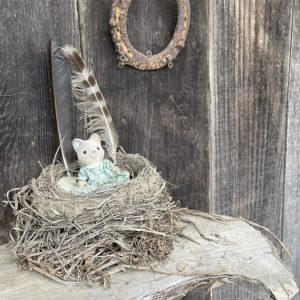 May these precious moments of stillness we hold together be fertile ground from which compassionate action arises. May we work for deeper kinship: with one another, and with all creatures, one Earth in need of our deep caring. As the world offers itself to us, we can offer ourselves to the world. In his poem, Today, the Sufi poet Hafiz writes:
May these precious moments of stillness we hold together be fertile ground from which compassionate action arises. May we work for deeper kinship: with one another, and with all creatures, one Earth in need of our deep caring. As the world offers itself to us, we can offer ourselves to the world. In his poem, Today, the Sufi poet Hafiz writes:
I
Do not
Want to step so quickly
Over a beautiful line on God’s palm
As I move through the earth’s
Marketplace
Today.
I do not want to touch any object in this world
Without my eyes testifying to the truth
That everything is
My Beloved.
Something has happened
To my understanding of existence
That now makes my heart always full of wonder
And kindness.
I do not
Want to step so quickly
Over this sacred place on God’s body
That is right beneath your
Own foot
As I
Dance with
Precious life
Today.
